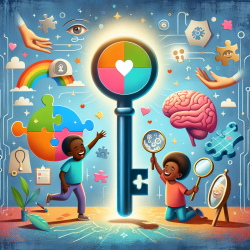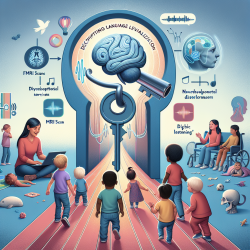Introduction
In the realm of child mental health, the need for effective collaborative care models is more pressing than ever. Recent research by Rousseau et al. (2012) explores the potential of two promising scales, the Perception of Interprofessional Collaboration Model (PINCOM-Q) and the shared decision-making scale (ECD-P), to enhance the quality of partnerships in child mental health collaborative care. This blog will delve into how practitioners can leverage these findings to improve their interprofessional collaboration skills, ultimately leading to better outcomes for children.
Understanding the Research
The study conducted by Rousseau and colleagues involved 96 primary care professionals working with children and youth. The researchers utilized the PINCOM-Q and an adapted version of the ECD-P to evaluate the quality of collaboration among child mental health professionals. The findings revealed that these scales have excellent internal consistency and are moderately correlated, suggesting they are effective tools for assessing collaboration quality.
Key Findings and Implications
One of the significant outcomes of the study is that child mental health professionals scored higher on individual interprofessional collaboration aspects compared to other professionals. This indicates that focusing on improving individual collaboration skills can enhance overall team performance. Practitioners can use the PINCOM-Q and ECD-P scales to monitor and assess their collaboration quality, providing a basis for continuous improvement.
Practical Steps for Practitioners
To implement the findings of this research, practitioners can take the following steps:
- Utilize the PINCOM-Q and ECD-P scales: Regularly assess your interprofessional collaboration skills using these scales to identify areas for improvement.
- Foster a culture of open communication: Encourage regular dialogue among team members to share insights and perspectives.
- Participate in collaborative training programs: Engage in workshops and training sessions focused on interprofessional collaboration to enhance your skills.
- Reflect on personal collaboration experiences: Take time to evaluate your past collaboration experiences and identify strategies that worked well.
Encouraging Further Research
While the study provides valuable insights, further research is necessary to establish a direct link between collaboration quality and improved child mental health outcomes. Practitioners are encouraged to contribute to this research by sharing their experiences and findings with the broader community.
Conclusion
Improving interprofessional collaboration in child mental health care is crucial for achieving better outcomes. By implementing the findings from the study by Rousseau et al., practitioners can enhance their collaboration skills and contribute to more effective care models. For those interested in exploring this research further, the original paper can be accessed here.










